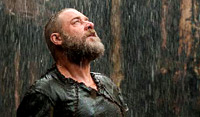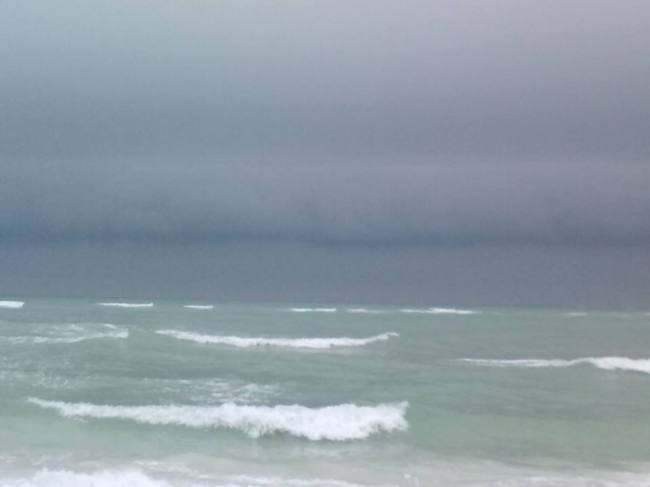So God said to Noah, “I am going to put an end to all people, for the earth is filled with violence because of them, I am surely going to destroy both them and the earth.”
Genesis 6:13
Is man evil? Or is there some good in man? Should man be damned and condemned to death for our evil? Or should we be given redemption?
These are questions that Darren Aronofsky’s Noah raises. There are no easy words to describe a movie like this. It is probably the most polarizing, debatable, interesting, troubling, confusing, confounding, provocative movie of 2014, and we still have a film about Moses and Nick Cage’s new Left Behind movie to go. But the purpose of the film isn’t to tell the Sunday School version of Noah’s Ark with a nice boat and happy animals, but to raise meaty questions, and to cause the viewers to take a second look at Genesis. Because somewhere we lost the purpose of this story. I’ll admit that I don’t think I have read the entire story in a while, and when I did before I saw the movie, I found it to be a whole lot bleaker than I remember. And the film does a good job of raising the questions. The rest of the movie does have a multitude of problems (Kabbalah/Gnostic influences, the Watchers, a lack of cohesiveness, an unneeded villain, Anthony Hopkins being very strange), but the main idea of the movie is the sinfulness of man.
This is where the movie excels. We watch as God creates the Universe, and Adam and Eve walk in the Garden, but then they fall due to sin when they eat the forbidden fruit. Then we watch at Cain kills Able, and in a sequence that left a great impression of me, the two figures turn into other humans killing each other, then into soldiers killing each other with swords, and then into soldiers across time with modern weapons and guns. This sequence shows that our modern sin is not new, it is traced back to the first humans. The movie has other scenes displaying the sinfulness of man, where men kill each other, sell each other as slaves, steal from each other, slaughter animals, and turn the earth into a post-apocalyptic wasteland.
The wages of sin is death.
And so God the Creator decides to destroy His creation. Destroy man that He created in His own image.
The wages of sin is death.
God calls Noah to do His will because Noah is a righteous man. However, as the movie shows, not even Noah is a sinless man. He sins, he doubts God, he leaves an innocent girl to be trampled by a mob, he attempts to kill his own grandchildren, he gets drunk and passes out naked (this last part is in the Bible). His wife and sons also sin. Sin is so deeply engrained in humanity, that even those who walk with God, sin. And this is the part that troubles Noah. He believes that humans are so evil, that even his own family should die and leave the world human-less. Only the animals should be saved because they are innocent and without sin.
“He called you because you are the last righteous man.” Noah’s son Shem says.
“No, He knew I would complete the task, nothing more.” replies Noah.
And yet Noah is disturbed by his task. If his children and grandchildren are allowed live and keep multiplying, then what is the point of everyone else dying he asks aloud. Love and redemption don’t even cross his mind.
The wages of sin is death.
But when he goes to kill his newly born grandchildren to prevent the spread of man’s wickedness, he stops.
“I looked down at those two little girls, and all I had in my heart was love.” Noah says.
And that’s what God saw in His heart when He looked down at Noah, love. And His love allowed Noah and his family to live, and to multiply upon the earth. Because of His love, He made a vow to never destroy the earth by water again. And because of His love, He sent His one and only son to die on the Cross for our sins, so that we may be redeemed. We have done nothing to deserve redemption, but by His love, we are redeemed.
Noah is not a perfect movie. It is messy, confusing, and strange. It plays fast and lose with the account in Genesis. And by no means can it replace the story in the Bible. But that isn’t it’s purpose. It’s purpose is to allow us to look at the story again, and to think about man’s wickedness and sin. And to think about God’s love. Because at the end of the day, through God’s love, and our faith in Him, we are redeemed.


